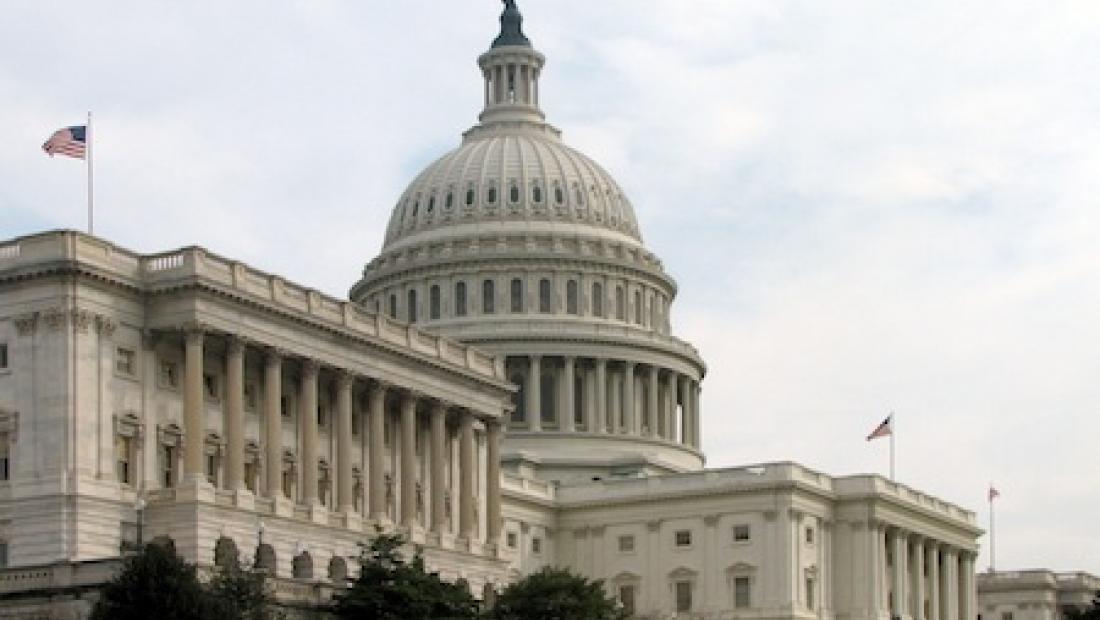High Noon for Net Neutrality CRA

The smarter way to stay on top of broadcasting and cable industry. Sign up below
You are now subscribed
Your newsletter sign-up was successful
At noon Wednesday (May 16), the Senate is scheduled to begin consideration of the legislative maneuver to nullify the FCC's network neutrality deregulation.
That is when a motion will be made to proceed to consideration of S.J. Res. 52, the Congressional Review Act resolution rolling back the Restoring Internet Freedom order, which eliminated the rules against blocking, throttling and paid prioritization and reversed the classification of ISPs as Title II telecommunications services subject to common-carrier regulations.
It could pass if ailing Sen. John McCain (R-Ariz.) is unable to vote or if the Democrats pick up another Republican. That would buoy net-neutrality activists, but it is still a very long shot for the CRA to make it past the other two houses, the House of Representatives and the White House. One Hill staffer speaking on background, however, said activists have been telling Hill Democrats that some three dozen moderate Republicans in the House could potentially be swayed.
The resolution was discharged from the Commerce Committee and put on the Senate floor calendar May 9.
The joint resolution is only two sentences long, but it is freighted with meaning for net-neutrality activists trying to restore the bright-line rules and ISPs who pushed for their elimination.
Joint Resolution "Providing for congressional disapproval under chapter 8 of title 5, United States Code, of the rule submitted by the Federal Communications Commission relating to 'Restoring Internet Freedom.' "Resolved by the Senate and House of Representatives of the United States of America in Congress assembled, that Congress disapproves the rule submitted by the Federal Communications Commission relating to 'Restoring Internet Freedom' (83 Fed. Reg. 7852, February 22, 2018), and such rule shall have no force or effect."
The resolution has 48 co-sponsors, 46 Democrats and two independents, as well as one Republican vote in its camp, Sen. Susan Collins of Maine.
The smarter way to stay on top of broadcasting and cable industry. Sign up below
The Senate has until June 12 to vote on the resolution, while the House has until the end of the year.
The resolution currently needs one vote in the Senate to pass, while it is dozens of votes short in the House and is unlikely to be signed by the president if it got that far. President Trump supported the FCC's rules rollback, though predicting the president's future actions based on past statements is problematic.
Senators did not wait until the net neutrality CRA was officially opened for debate to debate it, which some did in dueling morning speeches. Sen. Majority Leader Mitch McDonnell asid the CRA did not seek to reign in ove-rregulation, which he suggested was the proper use, but to "reimpose it." He said the CRA would handicap the FCC's ability to revive the
Restoring Internet Freedom order even if they were seen as necessary. That is because the CRA resolution would prevent the re-imposition of substantially similar deregs by the agency.
McConnell said Republicans have reached out on bipartisan legislation, but said Democrats had made it clear that the CRA, which would not ultimately pass, was about the mid-term elections.
Sen. Roger Wicker (R-Miss.) probably summed up the Senate Republicans' view of the CRA: "If it passes, it will be a statement and nothing more."
Sen. Ed Markey (D-Mass.), the lead sponsor of the CRA, said the CRA was needed to put consumers ahead of the rich and powerful and the vote would be "on the future of the internet."
Markey said the vote was about showing whose side senators were on. He also called it "my Congressional Review Act resolution to save network neutrality." Markey said that if the dereg takes effect June 11, consumers will be left defenseless against big ISPs and their lobbyists, whose pledges of self-regulation he suggested were hollow.
Contributing editor John Eggerton has been an editor and/or writer on media regulation, legislation and policy for over four decades, including covering the FCC, FTC, Congress, the major media trade associations, and the federal courts. In addition to Multichannel News and Broadcasting + Cable, his work has appeared in Radio World, TV Technology, TV Fax, This Week in Consumer Electronics, Variety and the Encyclopedia Britannica.

